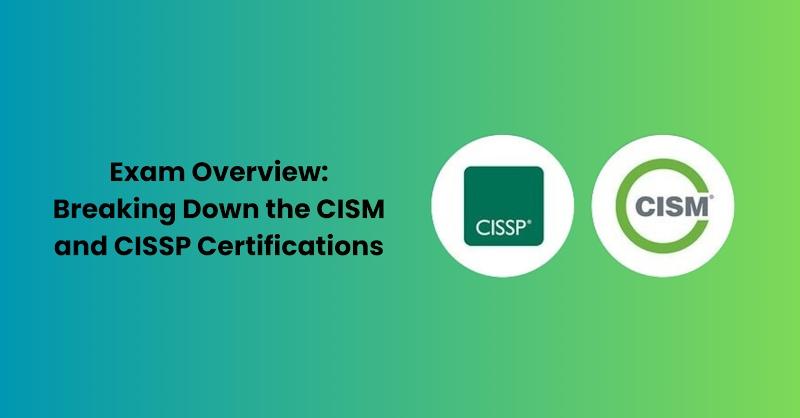Professionals looking to prove their knowledge frequently resort to industry-recognised certificates like the CISSP (Certified Information Systems Security Professional) and CISM (Certified Information Security Manager). These credentials are valuable in cybersecurity since they demonstrate knowledge and skills in protecting digital assets. Whether you are considering taking a CISSP Course or debating between CISSP vs CISM, this information will help you decide your certification path. In this blog, we will review the CISSP and CISM certifications in detail, looking at their key features, criteria, and benefits.
What is CISSP Certification?
The CISSP certification is commonly regarded as a mark of distinction in cybersecurity. (ISC)², a recognised nonprofit organisation dedicated to promoting information security, offers the CISSP certification, providing professionals with the skills and knowledge to implement, create, and manage robust cybersecurity programs. The CISSP course covers eight domains, including security and risk management, asset security, security architecture and engineering, communication and network security, identity and access management, security assessment and testing, security operations, and software development security, with its comprehensive approach.
Candidates for the CISSP certification must have at least five years of paid work experience in two or more areas. A bachelor’s degree or equivalent may necessitate one year of relevant experience. The CISSP exam will have 250 multiple-choice questions that assess applicants’ mastery of key cybersecurity principles. The CISSP certification indicates a thorough understanding of cybersecurity principles and opens the door to various professional prospects.
What is CISM Certification?
The CISM certification is an excellent option for anyone interested in information security management. CISM is a global professional association for IT governance, risk management, and cybersecurity professionals that ISACA administers. It is aimed to validate an individual’s experience in managing and administering enterprise information security programs. The four domains covered in the CISM course are:
- Information risk management.
- Information security governance.
- Information security program development and administration.
- Information security incident management.
Candidates for the CISM must have at least five years of experience in information security management, with at least three of the four domains specified above. The CISM exam is comprised of 150 multiple-choice questions meant to assess a candidate’s understanding of information security management topics. Earning the CISM certification demonstrates a high aptitude for strategic security management and prepares professionals for careers in cybersecurity leadership.
CISM vs CISSP: Choosing the Right Certification
The decision between CISM and CISSP is influenced by one’s career objectives and professional focus. The CISSP is a popular choice for security practitioners with diverse skill sets since it is well-suited for persons seeking a comprehensive understanding of multiple cybersecurity domains. Conversely, CISM is designed for professionals who want to excel in information security management and governance, making it an appealing alternative for those who want to lead and plan their cybersecurity operations.
Both credentials are widely recognised and highly valued by companies and peers worldwide. The distinction between CISM and CISSP should be made depending on your professional objectives and the specific area of cybersecurity in which you intend to concentrate.
Conclusion
Obtaining credentials from reputable organisations is a proactive step in demonstrating your knowledge and talents. The most advanced certifications in cybersecurity, the CISSP and CISM, offer a range of career possibilities. Whether you want to advance your knowledge by completing a CISSP course or excel in information security management, the path to becoming a certified professional is rewarding. Whichever path you take, obtaining the CISSP and CISM credentials will undoubtedly improve your employment opportunities and progress the cybersecurity industry, which is continually expanding.
